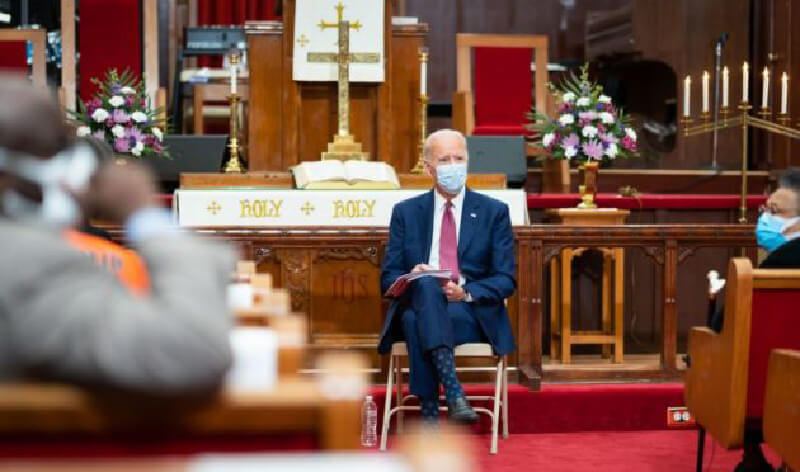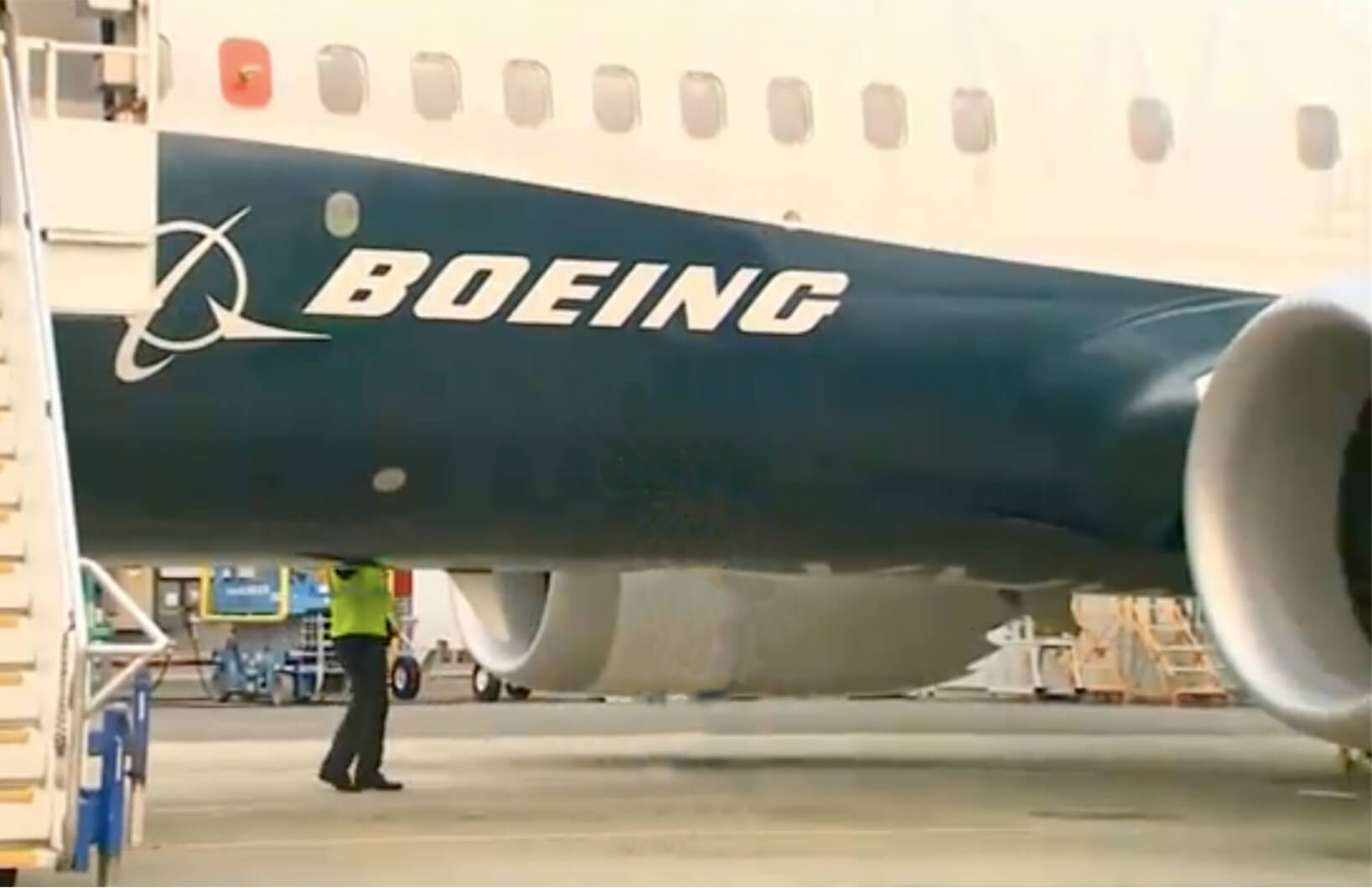There are those who support the separation of Church and State, and while there is the beginning of the presidency of Joseph Biden, a committed Catholic, the recent role of Christianity in U.S. politics has triggered a torrent of debate in the nation’s mass media.
About one-in-five U.S. adults are Catholic, and Catholicism has long been one of the nation’s largest religious groups, Pew Research reports.
Yet, John F. Kennedy was the only Catholic president until Joseph Biden was sworn in on Jan. 20.
Much has been written about President Joe Biden’s Catholic faith.
He often speaks of his religious convictions and quotes the Bible, and he attends Mass regularly, Aleksandra Sandstrom wrote for Pew.
There was only one other Catholic, aside from Biden, John Kerry, who was a presidential nominee on a major party ticket since the assassination of Kennedy in 1963.
Hours before Biden took his oath of office, he entered the front pew of the Cathedral of St. Matthew the Apostle, the seat of Catholic Washington, and beheld the mosaics behind the altar, The New York Times wrote.
While President Biden is only the second observant Catholic president in U.S. history, he also supports the right to an abortion. That has set him off on a rocky start with some U.S. bishops, the NPR program All Things Considered heard on Jan. 29.
BIDEN ATTENDS MASS
The Washington Post wrote on Jan. 27, just hours after Biden had attended Mass at St. Matthew’s, Archbishop José H. Gomez of Los Angeles, the U.S. Conference of Catholic Bishops president, issued a statement.
It began by praising Biden’s “piety” and “his moving witness to how his faith has brought him solace in times of darkness and tragedy,” but then moved to an unprecedented first-day rebuke.
“I must point out,” Gomez wrote, “that our new President has pledged to pursue certain policies that would advance moral evils and threaten human life and dignity, most seriously in the areas of abortion, contraception, marriage, and gender. Of deep concern is the liberty of the Church and the freedom of believers to live according to their consciences.”
That set off a fierce debate among U.S. Catholics, some with those who see Biden’s support for the downtrodden as supportive of his faith, but others who see his acceptance of the “pro-choice” views of his party that accepts abortion as being at odds with Catholic teaching.
The U.S. Constitution prohibits any religious test or requirement for public office.
Almost all U.S. presidents have been Christians, and many have been Episcopalians or Presbyterians, with most of the rest belonging to other prominent Protestant denominations.
One-in-five U.S. adults say it is “very important” to have a president with strong religious beliefs.
And 14 percent say the same applies to having a president who shares their own religious beliefs, according to a February 2020 Pew Research Center survey.
A far higher share (63 percent) note the importance of having a president who personally lives a moral and ethical life.
When he began as president, Trump was included as a Presbyterian in a previous Pew analysis version.
But he said in an Oct. 2020 interview with Religion News Service that he no longer identifies as a Presbyterian: “I now consider myself to be a nondenominational Christian.”
Trump had delivered an address on June 4, last year, in which he threatened military action on the nation. Then he walked to the nearby St. John’s Episcopal Church to pose with a Bible, Clint Witchalls had written in The Conversation on a publicity student that stirred global debate.
TRUMP WITH A BIBLE
“Yes, Trump held the Bible like a baby holding a spoon for the first time – unsure which end is which – but the real problem was the complete disconnection between the text in his hand and the force, both verbally threatened and actually used, to clear the way for his stunt,” said Witchalls.
“Tear gas and militarized police cleared crowds, including some of the church’s own clergy from its grounds, in order for Trump to pose in front of the church.”
Witchalls wrote that while Christian outrage at Trump’s hypocrisy is genuine, for reasons that several Christian leaders had “elegantly articulated,” there is a need to ask: did Trump do anything new?
“Has he done anything that powerful “Christian” leaders haven’t done for centuries?
“The answer is no. Co-opting Christianity in the service of power is almost as old as Christianity itself.”
Historically, about a quarter of presidents – including some of the most famous leaders, such as George Washington, James Madison, and Franklin Roosevelt – were members of the Episcopal Church, the U.S. successor to the Church of England, part of the worldwide Anglican Communion.
Presbyterians are the next largest group, with eight presidents, including Andrew Jackson and Ronald Reagan.
Unitarians and Baptists, including Jimmy Carter, Bill Clinton and Harry Truman, are the groups with the third-largest share of presidents, each with four.
There also have been four presidents who identify as Christian without a formal denomination, including Trump and his predecessor, Barack Obama.
Obama was raised in a non-religious household but converted to Christianity as an adult and worshipped at a United Church of Christ congregation – Trinity United Church of Christ – in Chicago.
However, Obama left Trinity during his first presidential campaign in 2008 after controversial statements by the church’s senior pastor, Jeremiah Wright, gained widespread attention.
Two of the most famous presidents in American history had no formal religious affiliation.
The first president Thomas Jefferson lost his faith in traditional Christianity at an early age, but Sandstrom said he continued to believe in an impersonal God as the creator of the universe.
“Jefferson famously edited the New Testament by removing references to the miracles and leaving in Jesus’ teachings,” she said.
The second president, Abraham Lincoln, was raised in a religious household and frequently spoke about God (particularly as president), but he never joined a church.
ABRAHAM LINCOLN
Scholars have long debated Lincoln’s beliefs, including whether he was a Christian, and some aspects of his faith remain a mystery.
Lincoln is not the only president for whom there is some uncertainty surrounding his affiliation and beliefs.
Some presidents were more private than others about their religious leanings, and some may have evolved in their beliefs during their life.
Sandstrom cites Lincoln’s second vice president and ultimately his successor, Andrew Johnson, who identified himself as a Christian but never was formally part of a denomination or congregation.
Another 19th-century president, Rutherford B. Hayes, sometimes attended Methodist churches but “moved among Protestant denominations during his life,” according to the Berkley Center for Religion, Peace & World Affairs at Georgetown University.














